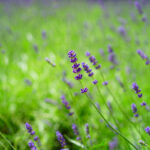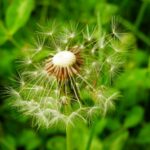Words Ending in -As – Taivutus: As-Loppuiset Sanat
Words ending in -as/-äs can be both nouns and adjectives. If you’ve studied Finnish for a little while, you’re likely to know at least the words hammas and varvas, which are both bodyparts. The capital letter on this page (such as in -As) is used to represent both vowel harmony options. For the letter -A- that means both -a- and -ä- (e.g. hammas; älykäs).
The Inflection of Words Ending in -As
Words ending in -as/-äs (which can be condensed as -As) mostly belong to one morphological group: they nearly all get -AA- in their stem when you add an ending (hammas : hampaat; potilas : potilaat; mätäs : mättäät). These words belong to wordtype B for their consonant gradation (aka all their inflected forms will be strong except for the singular nominative and singular partitive).
| Case | Singular | Plural | Singular | Plural |
|---|---|---|---|---|
| Nominative | hammas | hampaat | älykäs | älykkäät |
| Partitive | hammasta | hampaita | älykästä | älykkäitä |
| Genitive | hampaan | hampaiden | älykkään | älykkäiden |
| Missä-form | hampaassa | hampaissa | älykkäässä | älykkäissä |
| Mistä-form | hampaasta | hampaista | älykkäästä | älykkäistä |
| Mihin-form | hampaaseen | hampaisiin | älykkääseen | älykkäisiin |
| Millä-form | hampaalla | hampailla | älykkäällä | älykkäillä |
| Miltä-form | hampaalta | hampailta | älykkäältä | älykkäiltä |
| Mille-form | hampaalle | hampaille | älykkäälle | älykkäille |
| Translative | hampaaksi | hampaiksi | älykkääksi | älykkäiksi |
| Essive | hampaana | hampaina | älykkäänä | älykkäinä |
List of Words Ending in -As
The words that are marked in green are the easiest ones and, thus, the ones you should be studying first. I have decided to omit a whole bunch of adjectives ending in -kAs.
| Word | Translation | Sentence | Translation |
|---|---|---|---|
| ahdas | tight | Seison ahtaassa hississä. | I stand in the cramped elevator. |
| allas | pool | En koskaan ui tässä altaassa. | I never swim in this pool. |
| eräs | one | Eräs entinen opiskelija hävisi. | An ex-student disappeared. |
| eväs | lunch | Millaiset eväät sinulla on? | What kind of lunch do you have? |
| hammas | tooth | Ota irronnut hammas talteen. | Collect and save the loose tooth. |
| hauras | fragile | Hänellä on hauras luonne. | She has a fragile personality. |
| hidas | slow | Vihaan tätä hidasta internettiä. | I hate this slow internet. |
| iäkäs | old | Rakastan iäkästä mummoani. | I love my old grandma. |
| kangas | fabric | Tämä kangas on läpinäkyvä. | This fabric is see-through. |
| karvas | bitter | Kahvi maistuu karvaalta. | The coffee tastes bitter. |
| keidas | oasis | Keidas on aavikon keskellä. | The oasis is in the middle of the desert. |
| keihäs | spear | Hän heitti keihään lattialle. | He threw the spear on the floor. |
| kekseliäs | inventive | Kekseliäät oppilaat onnistuivat. | The inventive pupils succeeded. |
| kinnas | glove | Kintaat ovat hyvä lahja. | Gloves are a good present. |
| kiivas | intense | Kiivas keskustelu leimahti. | The heated debate flared up. |
| kiuas | stove | Heitä lämmintä vettä kiukaalle! | Throw warm water on the stove! |
| koiras | male animal | Koiraat kokoontuvat kesällä. | The males gather in summer. |
| kokelas | candidate | Kokelaat eivät osaa kirjoittaa. | The candidates can’t write. |
| kuningas | king | Kuningas asui linnassa. | The king lived in the castle. |
| lammas | sheep | Lampaanliha on rasvaista. | Sheep meat (mutton) is greasy. |
| lipas | lidded box | Lippaassa on koruja. | There’s jewelry in the box. |
| lounas | lunch | Syön lounasta kahvilassa. | I eat lunch in the cafe. |
| mallas | malt | Maltaasta valmistetaan olutta. | Beer is made from malt. |
| miehekäs | manly | Kaljuna olet miehekkäämpi. | You’re more manly bald. |
| naaras | female | Naaraat munivat. | The females lay eggs. |
| opas | guide | Kuuntelin opasta. | I listened to the guide. |
| oinas | aries | Oinas kaipaa intohimoa. | Aries needs passion. |
| oppilas | pupil | Annoin läksyt oppilaille. | I gave the homework to the pupils. |
| parras | brink | Se oli tuhon partaalla. | It was on the verge of destruction. |
| paljas | bare | Paljaat jalkani sattuvat. | My bare feet hurt. |
| paras | best | Toivon sinulle kaikkein parasta. | I wish the best to you. |
| patsas | statue | Istun patsaan juurella. | I sit at the base of the statue. |
| pensas | bush | Tykkään näistä ruusupensaista. | I like these rose bushes. |
| piiras | pie | Omenapiiras valmistuu helposti. | An apple pie is easy to make. |
| porras | step | Portaat johtavat ullakolle. | The stairs lead to the attic. |
| porsas | pork | En syö porsaanlihaa. | I don’t eat pork. |
| potilas | patient | Potilas oksensi. | The patient threw up. |
| puhdas | clean | Puhdas lakana on pöydällä. | The clean sheet is on the table. |
| pylväs | pillar | Pylväät ovat yhtä korkeita. | The pillars are equally tall. |
| rengas | wheel | Bussin renkaat pyörivät. | The wheels of the bus turn. |
| reipas | dashing | Antti on reipas poika. | Antti is a dashing boy. |
| ryväs | cluster | Vieraat saapuvat rypäinä. | The guests arrive in clusters. |
| rypäs | cluster | Vieraat saapuvat ryppäinä. | The guests arrive in clusters. |
| runsas | plenty | Syö runsaasti proteiinia! | Eat plenty of protein! |
| räystäs | eaves | Räystäs estää sadevettä. | The eaves stop the rain water. |
| saapas | boot | Nämä saappaat eivät mahdu. | These boots don’t fit. |
| sairas | sick | Sairaalassa on sairaita ihmisiä. | There are sick people in the hospital. |
| seiväs | pole | Seiväshyppääjä loukkaantui. | The pole-vaulter got injured. |
| sotilas | soldier | Armeijassa on sotilaita. | There are soldiers in the army. |
| taivas | sky, heaven | Taivas on sininen. | The sky is blue. |
| tehdas | factory | Tehtaan tuotanto laski. | Production at the factory declined. |
| toimelias | active | Toimelias perhe matkustaa. | The active family travels. |
| valpas | alert | Kissa on rento mutta valpas. | The cat is relaxed but alert. |
| varas | thief | Poliisi otti varkaat kiinni. | The police caught the thieves. |
| varvas | toe | Minulla on kymmenen varvasta. | I have ten toes. |
| valas | whale | Joskus valaita rantautuu. | Sometimes whales gets beached. |
| vieras | visitor | Vieraat saapuivat etuajassa. | The visitors arrived early. |
| viisas | wise | Pöllö on viisas eläin. | The owl is a wise animal. |
| älykäs | intelligent | Älykkäät miehet valmistuvat. | The intelligent men graduate. |
Exceptional Words
There is a handful of words that inflect in a different way than the words above. They will not have the -As turn into -AA- when adding a case ending. Instead, they will get -Akse-, much like the words keskus and tennis. I’m not sure why these words behave differently from the rest.
| Word | Partitive | T-plural | Missä | Plural Partitive |
|---|---|---|---|---|
| lihas | lihasta | lihakset | lihaksessa | lihaksia |
| emäs | emästä | emäkset | emäksessä | emäksiä |
| teräs | terästä | teräkset | teräksessä | teräksiä |
| ananas | ananasta | ananakset | ananaksessa | ananaksia |
| jalas | jalasta | jalakset | jalaksessa | jalaksia |
See the comments for more rare examples of this type of word!





I was curious about the “irregular” words ending in “-as” and I ended up finding 26 of them. Apart from the ones you mentioned, here are another interesting examples:
Wow, 26 is more than I expected. The words mullas and luudas are negligeable, I doubt most people even know them. All of these are more rare than the ones I listed.
Well, talking of negligeable, what about the rest 15 of them?
aidas (wooden pole), atlas (well ok, this international one is maybe not exactly negligeable 😛 ), haljas (flesh side of split leather), iskias (sciatica), juudas (traitor), kuvas (emulsion), madras (sparsely woven fabric), nahas (kip), priimas (primate (catholic)), sammas ((oral) thrush), tervas (kindling(-wood)), trikomoonas (trichomonas), vastas (birchtwig, birchsprig), vihdas (sheaf of birchtwigs), vitsas (wicker).
These words are extra interesting for me due to their derivation. These are almost all related to a noun ending in -a. VISK says that these words either indicate the material the root word is made of, or are related to the root word in some way.
So we have:
The word haljas probably comes from the verb halkaista (to split) because the skin and the flesh of a dead animals are split away from one another when skinning.
The word juudas is a name (one of Jesus’ disciples, who betrayed him), so it inflects the same way as Joonas (Joonakset) and Tuomas (Tuomakset).
The words iskias, madras, priimas and trikomoonas don’t have a Finnish root word. They’re borrowed from another language.
Another special word, according to Kotus, the only one ending in -us which behaves, so to say, as word ending in –as
Welll yes, it’s true, it’s dialectal, but isn’t it worth mentioning it like an exception? 🙂
“all their inflected forms will be strong except for the nominative and singular partitive” shouldn’t this be: “except for the nominative and partitive singular”? I.m.o. the nominative plural is also strong.
I think that could need some clarification, yes! I usually use the term “T-plural” for the nominative plural, and use the term “nominative” for the singular form only. This is somewhat misleading however, and not at all in line with what the table of this article shows. Thanks for the suggestion!